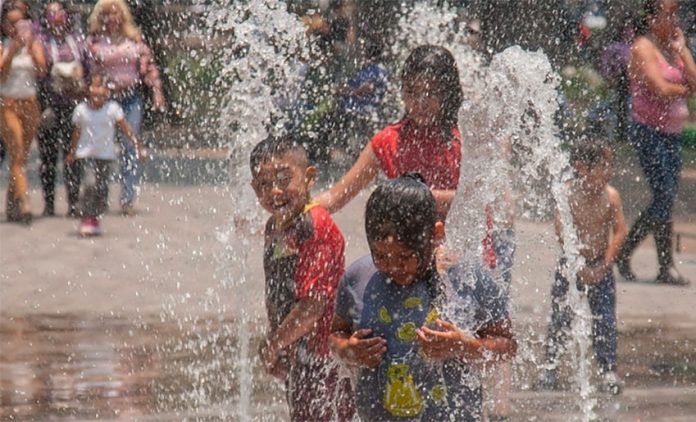The last six years were the six hottest on record in Mexico and climate change is to blame, according to the heads of the National Metrological Service (SMN) and the National Institute of Ecology and Climate Change (INECC).
The hottest year in the period – and in the almost 70 years since temperature records were first kept– was 2017 when the average temperature across the nation was 22.6 C, 1.7 degrees higher than average of 20.9 C over the period since records were first kept in 1953.
The title of second hottest year ever was shared by 2016 and 2019, both of which recorded an average nationwide temperature of 22.4 C – 1.5 degrees higher than the long-term average. The other years in the six-year period exceeded the average nationwide temperature by at least 1.2 C.
“As a planet, we’re one degree above the average that existed in the period from 1850 to 1900, and remember that the goal has been set to [not exceed a temperature increase] of 1.5 C,” SMN chief Jorge Zavala told a press conference last Wednesday.
“In Mexico’s case, 2019 was the second hottest year; we had an average temperature in the country of 22.4 C nationwide – this includes maximums and minimums of each day and in each region,” he said.
In a subsequent interview with the newspaper Milenio, Zavala said that the fact that six of the past 10 years were the hottest in the last 70 made it possible to conclude that the high temperatures were indeed attributable to climate change.
INECC general director María Amparo Martínez Arroyo offered a similar assessment.
“. . .What’s happening in the rest of the world is also happening in Mexico, we’re going through the process of global warming,” she said.
“All countries, including Mexico, have to accelerate their [emission reduction] actions in order to meet the Paris Agreement because we’re already seeing a very clear trend” that temperatures will likely continue to rise, Martínez added.
SMN forecaster Reynaldo Pascual Ramírez told Milenio that temperatures have been rising in Mexico since 2005, with only one year – 2010 – bucking the trend.
He said that most parts of the country experienced hotter weather last year than in 2018 although some regions including the Sinaloa coast and the states of Sonora, Baja California, Guerrero and Oaxaca didn’t see temperatures rise.
“. . .But it was hotter in Chihuahua, Coahuila, Zacatecas and the entire Huasteca. . .” Ramírez said, referring lastly to a region that encompasses parts of several states including Tamaulipas, Veracruz, San Luis Potosí and Hidalgo.
The forecaster also said that a severe drought affected eastern Mexico last year, highlighting that the region normally receives regular rainfall.
The National Water Commission said in September that two-thirds of Mexico was in drought of varying severity after almost 20% less rain than normal fell between in the first 8 1/2 months of last year.
Raúl Pacheco, a water management expert at the Mexico City research university CIDE, said in October that climate change will cause periods of drought to lengthen and that Mexico’s cities have to adapt to that reality.
“It’s important for cities to adapt to the lack of water and to do that they need a plan . . . They must invest money and there must be coordination between environmental agencies and those working on climate change . . .” he said.
Source: Milenio (sp)
